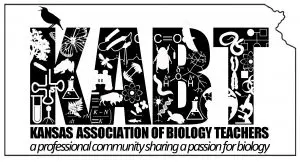Thesis Defense as a Model for Project Assessment
My grand experiment continues. I am attempting to isolate and identify methanotrophic microbes that I believe to be present in Olathe municipal water sources, with a focus on Indian Creek which runs near our high school. That’s not my grand experiment (it’s actually a pretty mundane and simple experiment, despite what my time investment tells you). The meta-experiment is my attempt to tackle this research question by establishing a lab group that operates like a university research lab but uses secondary students as the experimental contributors. The first participants were all AP Biology graduates, but the program is now comprised of students of all grade levels and science tracks.

Students pictured: AP bio grads, underclassmen on honors track, and upperclassman on vo-tech track. Lots of backgrounds.
My social science experiment has made exciting progress this year because we now have a dedicated class period for all of them to enroll and work together. Before this year all participating students had to work as independent study students flung across all of my other class periods. My attention was always divided and communication between students was very difficult. I’ve been forced to make some decisions about how to grade this class while not destroying the free-form and independent nature of the program that has led to its success so far. I decided to draw from our model again; graduate students defend their work before a panel of their superiors, so we will attempt to do the same.
The full defense format overview document is attached at the end of this post, but the upshot is students were given six minutes to present their work for the semester. Their presentations were followed by 9 minutes of Q&A from a 6 person panel:
- The program principal investigator – me
- A practicing scientist – this semester this chair was filled by a GK-12 fellow familiar with our program
- A building administrator – all available assistant principals and the principal sat for 1 or 2 sessions each
- USD233 science coordinator – the district K-12 science coordinator
- Project alum – a graduate of the program returned to sit the panels. He currently is attending Baker University
- Student’s seat – Each student was asked to fill the final seat with any adult. Most chose a parent, but not all.
The sessions were amazing. The students got really serious about the presentations, and the presence of administration convinced them that their time and effort in the program mattered. They created the presentations and performed internal peer review of the sessions. We then reserved the conference room a week early and did a dress rehearsal, in which they were brutal to each other (in a good way). They did additional revisions, and then they organized a students-only additional dress rehearsal again the following week. Every student gave a strong presentation, including students that struggle with one-on-one communication let alone public speaking.
This was a great experience for all the students, and for many of them it was the first presentation they’d ever given about which they really cared. The focus on Q&A caused them to focus on understanding their own work, rather than making a dense PowerPoint as a crutch. I’m hopeful that it will provide some of my students for whom communication is a challenge the experience and skills needed to be able to effectively prepare for job interviews and presentations they’ll have later in life. What I can definitely tell you now is everyone involved had an incredibly positive experience. It’s quite a feeling to drop off thank you notes to administrators and get to stand and listen to them bubble about trying to ask a meaningful question in these complex but engaging presentations.
If you’d like to learn more about my research group, check out our public page here. It will be updated with this year’s independent projects in January.



